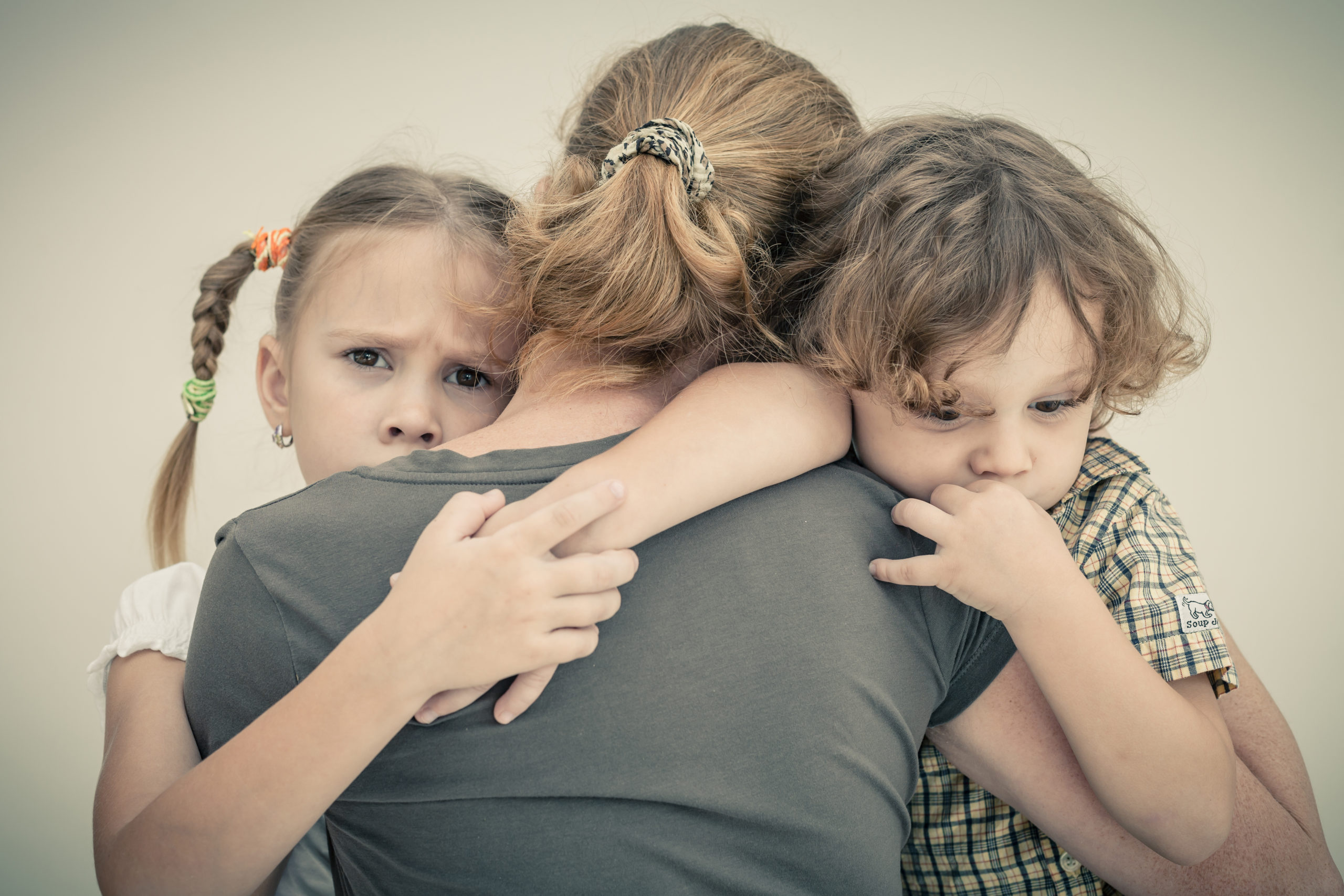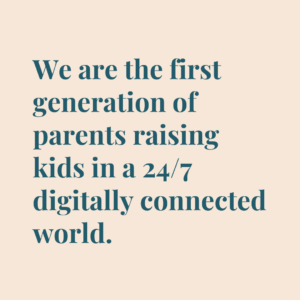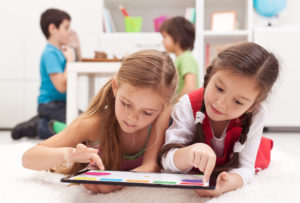“There is a great disturbance in The Force,” said the emperor to Darth Vader. At the sound of the metallic wheeze Darth Vader nodded and the adventure kicked into high gear. We are in the midst of a “great disturbance” as well, and there is a sustained tension and passionate emotions as a confluence of extraordinary events – a pandemic, an election, civil unrest and disruptive lockdowns – create an unfamiliar and threatening climate for our children.
Children don’t have any reference points to help them conclude things will be okay, and that we will survive and thrive through these challenges. They just know something isn’t right, and that grown ups are upset and edgy.
Parents need to be mindful about how the upcoming election news cycle will affect children of all ages. Whether their child already struggles to manage anxiety or not, the tenor and tone of the news coverage will have a direct impact on a many children, and can become problematic if not managed and supported by parents and other key adults in their lives.
In June 1968 the iconic children television’s host Fred Rogers chose to address the assassination of Robert Kennedy in his show because he knew children would have feelings of confusion and fear as they observed adults sadness and shock over the tragedy. He returned after 9-11 with a television special for children on the same premise that a large national moment which absorbed adult’s attention and emotion needed to be explained to children in a way they could understand. More importantly, he understood that children’s feelings of confusion upon suddenly seeing their parents and other adults sad or crying would have to be addressed and managed in a supportive way.
As a clinical child psychologist, I have spent decades treating pediatric anxiety. It can be as simple as a chronic undercurrent of discomfort, and as severe as acute episodes that require intervention with intensive treatment. In treating a child with anxiety, we need to be aware of how the external environment impacts each individual child. Children are absorbing the world around them the same way adults do, but they have less life experience, knowledge, and maturity to interpret what they are seeing. Therefore, it can be very difficult for them to process information or experiences in the proper context. This particular election season, including the weeks after the election, are times when parents need to be mindful about how the entire situation may look and feel to a child.
Regardless of where you fall on the political spectrum, there is an abundance of anger and confusion waiting to counter any particular belief or stance. Children pick up on this, and it feels confusing to them. When they see adults shouting at each other on television they know something is wrong. We have endured a pandemic that took most children out of school, and they are reminded every day as they wear masks and social distance that things aren’t okay. The civil unrest that brings us videos of violence and fires all create a perfect storm of anxiety for everyone, regardless of age.
Here are some tips to keep in mind, both during and after the election, that can help children feel supported and manage their anxiety.
- Reinforce that no matter what children see or hear on television, they are safe in their own homes and with the people who care about them. As images of angst or violence play on a constant loop, children need to know that their homes and key relationships are a source of safety and security.
- Explain that its perfectly normal for adults to disagree on all kinds of matters, sometimes quite passionately. As children see talking heads on the news arguing and even yelling, explain that its part of their job to be passionate and bold on television.
- Spotlight that although your family may have certain beliefs and views that are different from what children are hearing or seeing, no one is the enemy and everyone has value. It can be terrifying to children to perceive that groups are enemies of one another, and its crucial they understand the difference between opposing views and political parties and actual enemies. This year and election season is unique in that there is toxic rhetoric from all directions that gives the appearance of groups on all sides seemingly ready to fight or become violent.
- Ask what questions they have. Consistently carve out moments to sit down and talk with your children. This should be done at a level of detail and depth that is developmentally appropriate, using words and examples they can understand. Remember that children often have thoughts and questions we don’t expect. You may be surprised that one of the first questions a child will ask is about conflict they are observing within the family – “Mom, do you hate uncle Joe because he likes XYZ and you guys fight about it all the time?” Children need to know that underneath that disagreement there is love and support.
- Avoid constant media exposure and monitor what children are seeing and hearing. Depending on their age, it may be appropriate for children to engage with some media coverage of current events. If this becomes distressing or consuming, however, it’s time to place some healthy limits and boundaries on tech use and TV time. This is true for the adults in the home as much as the children!
- Focus on the ability to handle whatever might happen, rather than on reassuring that everything will turn out okay. Often as parents we want to relieve our children of any worry by telling them that everything will be fine. This is not necessarily true, and can break trust when things don’t turn out well or there are difficulties we don’t expect. Instead of blanket reassurance about outcomes, it’s important to focus on their ability to handle and make it through the situation. Using this approach, “Don’t worry it will all be fine” turns into “I understand that it feels scary, and I am confident we will be able to handle whatever happens.”
Lastly, children need to know that however the election unfolds things will move forward, and spirited debate is actually a positive opportunity we enjoy in this country. You may have very deep emotional feelings about everything that is happening right now, and there are some elements that many of us haven’t seen in our lifetimes. This causes all of us concern, stress, worry, and even pessimism.
It’s important to step back and deliberately ensure that your emotions don’t bleed into the atmosphere you are creating for your children. Just as you teach children what to do in an emergency or if they are lost, lay down very clear directives that they can ask you questions about anything they see on television or hear form peers. Also explain that we are expecting and prepared for any upheaval that might happen around and after the election.
Children are like sponges for the words, emotions, actions, and everything else they see in us and the environment around them. Perhaps the most important thing we can do for children is to be a model of the communication, behavior, and coping skills we want them to develop. This is a stressful time for everyone, and emotions are running high all the way around. Taking time to view this moment in history through our children’s eyes helps us focus on what’s really important, and allows us to provide the support necessary to develop the resilience that will get them through this and future life challenges.
What You Should Do Next:
Sign up for my Better Behavior Naturally community newsletter
Sign up for my newsletter to get tips, resources, and supports to improve your child’s attention, anxiety, mood, and behavior…while making your job as a parent easier.
Enroll in one of my workshops
Check out one of my many workshops where you’ll join my exclusive community of parents in a one-of-a-kind virtual resource accessible 24/7. Whether you’ve got a child with a diagnosis like autism or ADHD, or are becoming more and more frustrated with a child who struggles to listen and cope, these workshops are designed to give you the information, tools, and support you need…whenever you need it.








